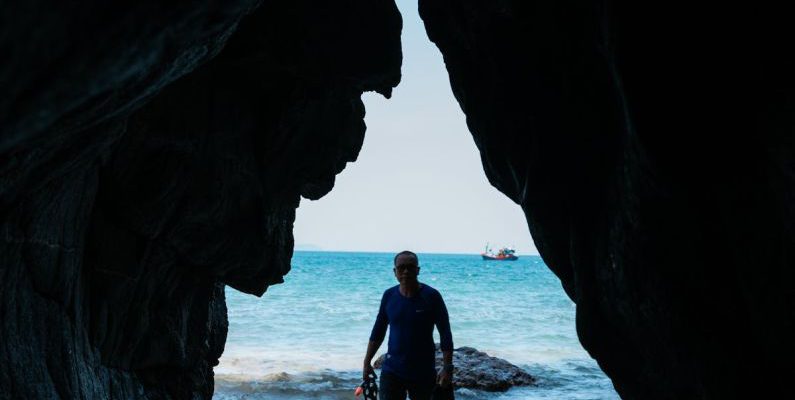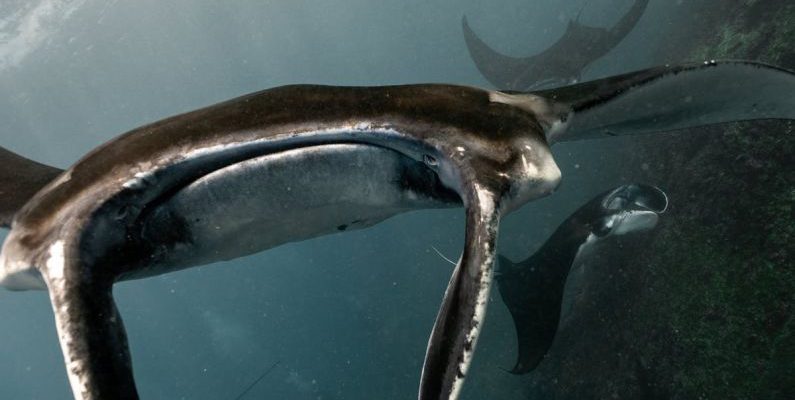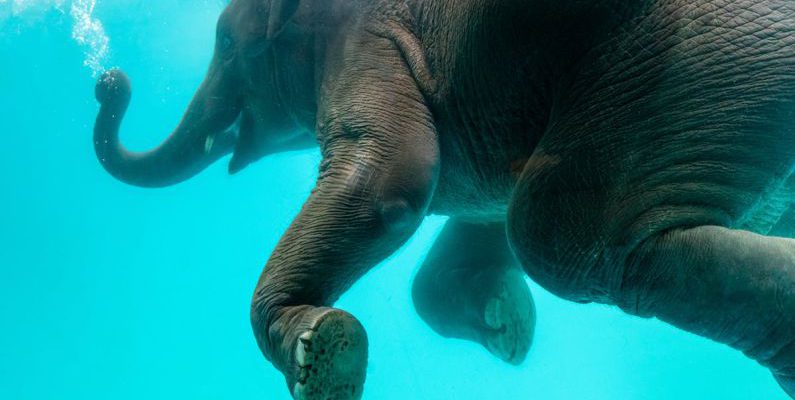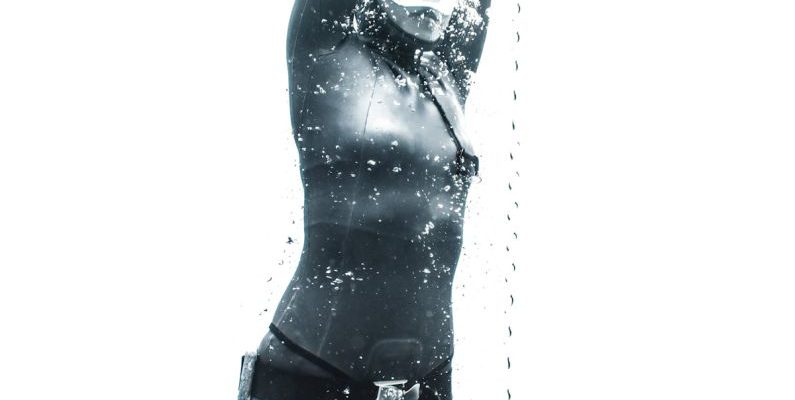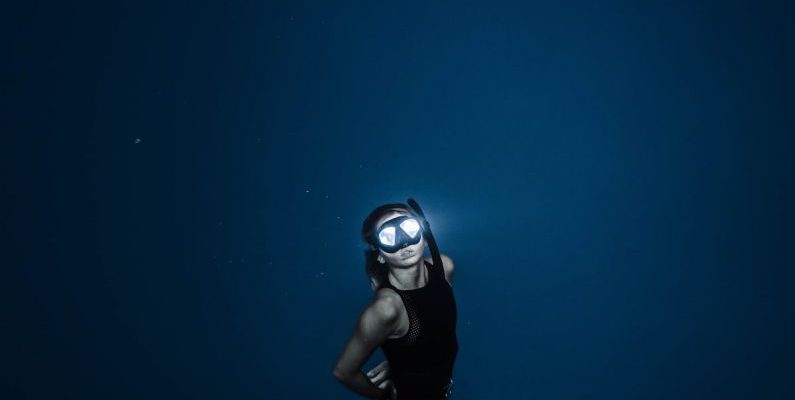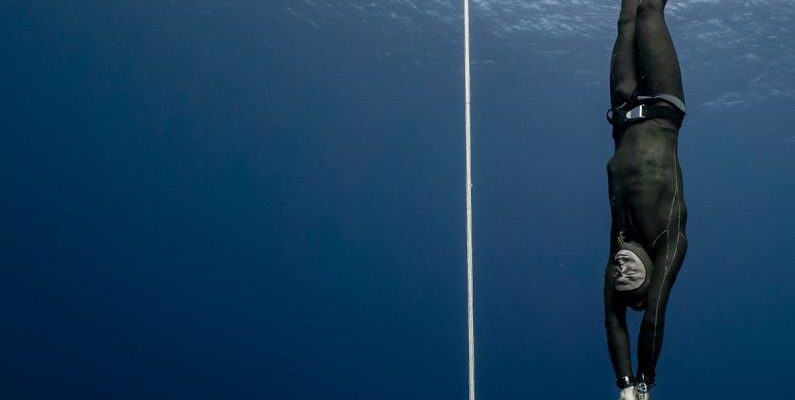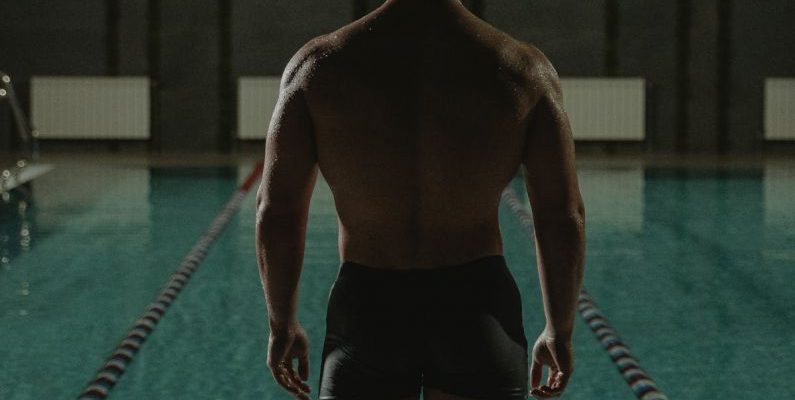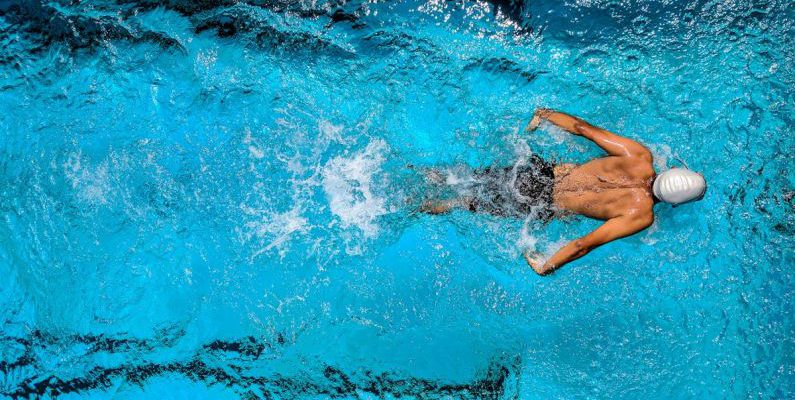Nestled beneath the surface of Mexico's turquoise waters lies a hidden world waiting to be explored by the adventurous at heart. Cave diving in Mexico offers a unique and thrilling experience for those seeking to venture into the unknown depths of underwater caverns. From the crystal-clear waters of the Yucatan Peninsula to the mysterious cenotes scattered throughout the country, Mexico's cave diving sites are a magnet for thrill-seekers and diving enthusiasts alike.
**Exploring the Cenotes: Gateways to the Underworld**
One of the most fascinating aspects of cave diving in Mexico is the opportunity to explore cenotes, natural sinkholes formed by the collapse of limestone bedrock that reveal access to intricate underwater cave systems. These cenotes serve as gateways to the underworld, offering divers a glimpse into a mesmerizing world of stalactites, stalagmites, and crystal-clear waters that seem to stretch into infinity. The Yucatan Peninsula is renowned for its extensive network of cenotes, each with its own unique features and challenges for divers to conquer.
**Challenges and Rewards of Cave Diving**
Cave diving in Mexico presents a set of challenges unlike any other form of diving. Navigating through narrow passages, contending with low visibility, and managing air supply are just a few of the obstacles that divers may encounter in the dark and labyrinthine caves. However, the rewards of cave diving far outweigh the challenges. The sense of exploration and discovery, the otherworldly beauty of the underwater landscapes, and the adrenaline rush of pushing the limits of one's diving skills make cave diving in Mexico an unforgettable experience.
**Safety First: The Importance of Proper Training**
Due to the inherent risks involved in cave diving, proper training and certification are crucial for anyone looking to embark on this exhilarating adventure. Cave diving requires specialized skills and equipment, as well as a thorough understanding of cave diving protocols and safety procedures. Divers must be prepared to handle emergencies, navigate complex cave systems, and maintain a cool head under pressure. With the right training and experience, cave diving in Mexico can be a safe and rewarding endeavor.
**Preserving Mexico's Underwater Heritage**
As more divers flock to Mexico's cave diving sites in search of thrills and adventure, it is essential to prioritize the conservation and preservation of these fragile underwater ecosystems. Responsible diving practices, such as avoiding contact with delicate formations, minimizing disturbances to marine life, and properly disposing of waste, are essential to ensure that future generations can continue to enjoy the beauty of Mexico's underwater caves. By respecting the environment and following sustainable diving practices, we can help protect Mexico's underwater heritage for years to come.
**Embracing the Unknown: A Journey of Discovery**
Cave diving in Mexico is not just a physical adventure; it is also a journey of self-discovery and exploration. Stepping into the unknown depths of underwater caves challenges divers to confront their fears, push their boundaries, and embrace the thrill of the unfamiliar. The sense of awe and wonder that comes from exploring these hidden realms is a reminder of the vast and mysterious beauty of the natural world. For those willing to take the plunge, cave diving in Mexico offers a transformative experience that will leave a lasting impression.
**In Conclusion: A World Waiting to be Explored**
Cave diving in Mexico is a gateway to a world of wonder and excitement, where divers can immerse themselves in the beauty and mystery of underwater caves. From the breathtaking cenotes of the Yucatan Peninsula to the remote cave systems of the Mexican jungle, Mexico's cave diving sites offer a unique opportunity to explore the unknown and discover the hidden treasures of the underwater world. With proper training, respect for the environment, and a spirit of adventure, cave diving in Mexico promises an unforgettable journey into the depths of the earth.
Author: diveholidayisle
Diving into the world of underwater exploration can be an exhilarating experience. However, ensuring that you have the right insurance coverage is crucial for your safety and peace of mind. With so many options available, choosing the right dive insurance can seem like a daunting task. In this comprehensive guide, we will break down the key factors to consider when selecting dive insurance to help you make an informed decision.
Understanding Dive Insurance Coverage
Before delving into the specifics of choosing the right dive insurance, it's essential to understand what dive insurance covers. Dive insurance typically provides coverage for medical expenses related to diving accidents, emergency evacuation, equipment loss or damage, and trip cancellations or interruptions. Some policies may also offer coverage for hyperbaric chamber treatments and search and rescue operations. It's vital to carefully review the coverage details of each policy to ensure it meets your specific needs.Factors to Consider When Choosing Dive Insurance
Coverage Limits and Exclusions
When selecting dive insurance, pay close attention to the coverage limits and exclusions outlined in the policy. Ensure that the coverage limits are sufficient to cover potential medical expenses, emergency evacuations, and equipment losses. Additionally, be aware of any exclusions that may limit your coverage, such as pre-existing medical conditions or certain high-risk activities.Emergency Assistance Services
One of the most critical aspects of dive insurance is the emergency assistance services provided. Look for policies that offer 24/7 emergency assistance hotlines staffed by medical professionals who can help coordinate emergency evacuations and medical treatments. Having access to reliable emergency assistance services can make a significant difference in the event of a diving emergency.Trip Cancellation and Interruption Coverage
If your dive trip is canceled or interrupted due to unforeseen circumstances such as inclement weather or travel delays, having trip cancellation and interruption coverage can help protect your investment. Make sure to review the policy's terms and conditions regarding trip cancellations and interruptions to understand what situations are covered.Equipment Coverage
Diving equipment can be expensive to repair or replace, so having coverage for equipment loss or damage is essential. Check if the policy provides coverage for your diving gear, including wetsuits, regulators, dive computers, and cameras. Ensure that the policy covers both owned and rented equipment.Medical Coverage and Hyperbaric Chamber Treatments
In the event of a diving accident, adequate medical coverage is crucial to cover the costs of emergency medical treatment, hospitalization, and follow-up care. Some dive insurance policies also offer coverage for hyperbaric chamber treatments, which are essential for treating decompression sickness. Verify that the policy includes coverage for these medical expenses to avoid unexpected financial burdens.Search and Rescue Operations
In the unfortunate event that you require search and rescue assistance during a dive, having coverage for these operations can be a lifesaver. Look for dive insurance policies that provide coverage for search and rescue operations, including the costs of deploying rescue teams and equipment.Comparing Policy Costs and Benefits
Once you have evaluated the key factors mentioned above, it's essential to compare the costs and benefits of different dive insurance policies. Consider the premiums, deductibles, coverage limits, and additional benefits offered by each policy to determine which one provides the best value for your needs.Selecting the Right Dive Insurance
After careful consideration of the factors outlined in this guide, you can confidently select the right dive insurance policy that meets your specific requirements. Remember that having adequate dive insurance coverage is essential for your safety and financial protection while exploring the underwater world. By choosing the right dive insurance, you can enjoy your diving adventures with peace of mind knowing that you are well-protected in case of emergencies. In conclusion, navigating the world of dive insurance may seem overwhelming at first, but with the information provided in this guide, you can make an informed decision that ensures you have the coverage you need for your diving pursuits. Stay safe, dive responsibly, and enjoy the wonders that lie beneath the surface with the right dive insurance by your side.
Diving enthusiasts around the world are increasingly embracing eco-friendly practices to minimize their impact on the marine environment. Whether you are a seasoned diver or a beginner looking to explore the underwater world, incorporating sustainable habits into your diving routine can help protect fragile ecosystems and marine life. Here are some essential travel tips for eco-friendly diving that will allow you to enjoy the beauty of the ocean responsibly.
Choose Eco-Friendly Dive Operators
When planning your diving trip, opt for dive operators that prioritize sustainable practices. Look for operators that are committed to minimizing their environmental footprint, such as using eco-friendly cleaning products on their boats, supporting marine conservation initiatives, and following responsible diving guidelines. By choosing eco-conscious dive operators, you can support businesses that are dedicated to preserving the marine environment for future generations.Respect Marine Life
One of the fundamental principles of eco-friendly diving is to respect marine life and their habitats. Avoid touching or disturbing marine animals, as this can disrupt their natural behavior and cause stress. Maintain a safe distance from coral reefs and other fragile marine ecosystems to prevent accidental damage. By observing marine life from a respectful distance, you can minimize your impact on delicate underwater habitats and promote the well-being of marine species.Practice Proper Buoyancy Control
Mastering buoyancy control is essential for eco-friendly diving, as it allows you to move through the water with minimal disturbance to the marine environment. Proper buoyancy control helps you avoid accidental contact with coral reefs and prevents stirring up sediment that can harm marine life. Take the time to hone your buoyancy skills through practice and training, so you can glide effortlessly through the water while minimizing your impact on the underwater ecosystem.Use Reef-Safe Sunscreen
Sunscreen is a vital part of protecting your skin while diving, but many conventional sunscreens contain harmful chemicals that can damage coral reefs and marine life. Opt for reef-safe sunscreen products that are free of oxybenzone and octinoxate, two common ingredients that have been linked to coral bleaching and coral reef decline. By choosing reef-safe sunscreen, you can enjoy sun protection without contributing to the degradation of fragile coral ecosystems.Reduce Single-Use Plastics
Single-use plastics, such as water bottles, plastic bags, and straws, pose a significant threat to marine life and contribute to ocean pollution. Reduce your plastic waste while diving by using reusable water bottles, eco-friendly dive gear bags, and biodegradable alternatives to single-use plastics. Minimizing your use of disposable plastics not only helps protect marine animals from ingestion and entanglement but also reduces plastic pollution in the ocean.Support Marine Conservation Efforts
Get involved in marine conservation initiatives during your diving trips to contribute to the protection of the underwater environment. Participate in beach cleanups, coral restoration projects, or marine life monitoring programs to actively support conservation efforts in the areas you visit. By volunteering your time and resources to marine conservation, you can make a positive impact on the health of ocean ecosystems and help preserve marine biodiversity for future generations.Embrace Sustainable Dive Practices
Incorporate sustainable dive practices into your diving routine to minimize your environmental impact and promote ocean conservation. Respect local regulations and guidelines for diving, such as not feeding marine animals, anchoring on coral reefs, or collecting marine souvenirs. By following responsible diving practices, you can help protect marine ecosystems and contribute to the sustainability of the underwater environment.Make a Difference Through Eco-Friendly Diving
By adopting eco-friendly diving habits and supporting sustainable dive operators, you can make a positive difference in protecting the marine environment. Take proactive steps to reduce your impact on the ocean, respect marine life and habitats, and support marine conservation efforts during your diving adventures. By embracing eco-friendly practices, you can enjoy the wonders of the underwater world while safeguarding its beauty for future generations to explore and appreciate.
Diving is an exhilarating activity that allows individuals to explore the underwater world and witness spectacular marine life. However, as with any adventurous pursuit, safety should always be the top priority. Proper ascent technique is crucial in ensuring a safe and enjoyable diving experience. Here, we will discuss the essential safety procedures to follow while ascending during a dive.
### Understanding Buoyancy Control
Maintaining proper buoyancy control is fundamental when ascending during a dive. It is vital to ascend slowly and in a controlled manner to prevent barotrauma and decompression sickness. By adjusting your buoyancy using your BCD (Buoyancy Control Device) and controlling your breathing, you can achieve a smooth and controlled ascent.### Ascending at a Safe Rate
One of the most critical aspects of ascending properly while diving is to do so at a safe rate. The recommended ascent rate is around 30 feet per minute or slower. Ascending too quickly can lead to decompression sickness, lung overexpansion injuries, and other serious health issues. Remember, slow and steady wins the race when it comes to ascending from a dive.### Performing Safety Stops
Safety stops are an essential part of ascending safely from a dive, especially after deep or long dives. Safety stops allow your body to off-gas excess nitrogen absorbed during the dive gradually, reducing the risk of decompression sickness. The standard safety stop is three minutes at 15 feet, but longer stops may be necessary for deeper or extended dives.### Monitoring Your Depth and Time
Maintaining awareness of your depth and dive time is crucial for a safe ascent. Use a dive computer or depth gauge to track your depth continuously and ensure you are ascending at the correct rate. Additionally, keep an eye on your dive time to adhere to no-decompression limits and avoid exceeding safe bottom times.### Equalizing Your Ears
Proper ear equalization is essential during ascent to prevent barotrauma and ear injuries. Equalize your ears early and often as you ascend by gently pinching your nose and blowing gently to equalize the pressure in your ears. Failing to equalize properly can result in discomfort, pain, and potential ear injuries.### Signaling Your Ascent
Communication is key in diving, even during ascent. Use your dive buddy or group's pre-agreed upon signals to communicate your ascent and any issues that may arise. Signaling your ascent allows your buddy to monitor your progress and assist if needed, enhancing overall dive safety.### Maintaining a Positive Buoyancy
As you ascend, it is essential to maintain positive buoyancy to prevent rapid or uncontrolled ascent. Use your BCD to control your buoyancy and adjust as needed to maintain a slow and controlled ascent rate. Avoid ascending feet-first or head-first, as this can lead to loss of control and potential injuries.### Preparing for Emergency Ascents
Despite following all safety procedures, emergencies can still occur while diving. Be prepared for emergency ascents by familiarizing yourself with emergency ascent procedures, including controlled emergency swimming ascents (CESAs) and alternate air source use. Practice these procedures regularly to ensure you can respond effectively in case of an emergency.### Conclusion: Prioritizing Safety in Ascent
Ascending properly while diving is essential for a safe and enjoyable diving experience. By understanding and following these safety procedures, you can minimize the risks associated with ascent and ensure a smooth return to the surface. Remember, safety should always be the top priority when exploring the wonders of the underwater world.
The allure of night diving in Indonesia is like no other. As the sun sets below the horizon, a whole new world awakens beneath the surface of the ocean. The dark veil of the night brings out a different side of marine life, making each dive a unique and unforgettable experience. From bioluminescent creatures to elusive nocturnal species, night diving in Indonesia offers divers a glimpse into the mysteries of the deep.
**The Underwater Symphony**
As the last rays of sunlight fade away, the underwater world transforms into a symphony of sounds and movements. Night diving in Indonesia is a sensory overload, with the vibrant colors of coral reefs contrasting against the darkness of the ocean. The gentle swaying of sea fans and the rhythmic pulsing of anemones create a mesmerizing dance that is only visible under the cover of night.
**Bioluminescent Magic**
One of the most enchanting aspects of night diving in Indonesia is encountering bioluminescent organisms. These otherworldly creatures light up the darkness with their natural glow, creating a magical underwater display. From tiny plankton that sparkle like stars to jellyfish that radiate an ethereal blue light, witnessing bioluminescence during a night dive is a truly mesmerizing experience.
**Nocturnal Encounters**
As daytime creatures retreat into hiding, a whole new cast of characters emerges from the shadows during night diving in Indonesia. Octopuses, squids, and cuttlefish, known for their elusive nature, become more active under the cover of darkness. Their intricate movements and shape-shifting abilities make for a captivating underwater encounter that is best experienced at night.
**The Thrill of the Hunt**
For the adventurous diver, night diving in Indonesia offers the thrill of the hunt for elusive nocturnal species. From hunting moray eels to spotting camouflaged frogfish, night dives provide a unique opportunity to witness marine life in action. The challenge of locating these elusive creatures in the dark adds an element of excitement and mystery to the dive, making it an exhilarating experience for those seeking a different kind of underwater adventure.
**Navigating the Dark**
Navigating the underwater world at night requires a different set of skills and awareness compared to daytime diving. Divers rely on powerful dive lights to illuminate their path and reveal hidden treasures in the darkness. The play of light and shadows adds an element of mystery to the dive, as familiar dive sites take on a new and unfamiliar appearance under the cloak of night.
**The Magic of Night Diving**
Night diving in Indonesia is a magical experience that offers divers a glimpse into a world that is often hidden from view. The darkness of the ocean holds secrets and surprises waiting to be discovered, making every night dive an adventure into the unknown. Whether you are captivated by bioluminescent displays, intrigued by nocturnal creatures, or simply seeking a new perspective on familiar dive sites, night diving in Indonesia promises an unforgettable underwater journey that will leave you in awe of the mysteries of the deep.
**Unveiling the Mysteries**
As the night dive comes to an end and divers resurface, the mysteries of the deep linger in their minds. The encounters with bioluminescent organisms, elusive nocturnal species, and the thrill of navigating the dark depths all contribute to a night diving experience that is as exhilarating as it is unforgettable. Night diving in Indonesia unveils the mysteries of the underwater world in a way that is both captivating and awe-inspiring, leaving divers with a newfound appreciation for the beauty and diversity of marine life that thrives beneath the surface of the ocean.
Before embarking on an exciting dive holiday, it is crucial to prioritize your safety by ensuring you are in optimal health for underwater adventures. While diving offers a unique and exhilarating experience, it also poses certain risks, particularly for individuals with underlying medical conditions. To ensure a safe and enjoyable dive holiday, it is essential to undergo specific medical checks to assess your fitness for diving. By taking the necessary precautions and addressing any potential health concerns beforehand, you can minimize the risk of complications and fully enjoy your underwater exploration.
Medical History Assessment
One of the first steps in preparing for a dive holiday is to undergo a thorough medical history assessment. This involves disclosing any pre-existing medical conditions, previous surgeries, and medications you are currently taking. Certain medical conditions, such as cardiovascular disorders, respiratory issues, and ear problems, can potentially impact your ability to dive safely. By providing your healthcare provider with a comprehensive medical history, they can assess whether you are fit to dive or if any additional precautions are necessary.Cardiovascular Evaluation
The health of your cardiovascular system is of utmost importance when it comes to diving. Any underlying heart conditions can increase the risk of complications underwater, such as decompression sickness or arterial gas embolism. To assess your cardiovascular fitness for diving, a thorough evaluation may include tests such as an electrocardiogram (ECG), stress test, and blood pressure monitoring. Ensuring that your heart is in good condition is crucial for maintaining optimal oxygen supply and circulation during dives.Pulmonary Function Testing
Your lung health is another critical aspect to consider before engaging in diving activities. Proper lung function is essential for maintaining buoyancy, equalizing pressure, and overall respiratory efficiency underwater. Pulmonary function testing, including spirometry and lung capacity measurements, can help assess your lung health and identify any respiratory issues that may affect your ability to dive safely. Individuals with conditions such as asthma or chronic obstructive pulmonary disease (COPD) may require additional precautions or restrictions when diving.Ear, Nose, and Throat Examination
The health of your ears, nose, and throat can significantly impact your diving experience. Issues such as ear infections, sinus congestion, or eustachian tube dysfunction can lead to difficulties with equalizing pressure, potentially causing barotrauma or ear injuries during descents and ascents. An ear, nose, and throat examination, including otoscopy and tympanometry, can help identify any existing problems that may interfere with your ability to equalize effectively while diving. Addressing these issues beforehand can prevent discomfort and potential injuries during dives.Vision Assessment
Good vision is essential for safe diving, as it allows you to navigate underwater environments, read gauges, and communicate with your dive buddy effectively. An eye examination, including visual acuity testing and assessment of color vision, can help ensure that your vision meets the necessary standards for diving. Individuals who require corrective lenses should also consider investing in prescription dive masks to enhance their underwater visibility and comfort.Medication Review
If you are currently taking any medications, it is crucial to review them with your healthcare provider to assess their compatibility with diving. Some medications, such as certain decongestants or sedatives, can have adverse effects underwater and may impair your ability to dive safely. Your healthcare provider can provide guidance on whether any adjustments to your medication regimen are necessary to ensure your safety and well-being during dives.Dive Fitness Certification
Once you have completed the necessary medical checks and assessments, you may be required to obtain a dive fitness certification from a qualified healthcare provider. This certification serves as confirmation that you are medically fit to dive and have addressed any potential health concerns that may affect your safety underwater. By obtaining a dive fitness certification, you can embark on your dive holiday with confidence, knowing that you have taken the necessary precautions to ensure a safe and enjoyable experience. In conclusion, prioritizing your health and safety through thorough medical checks before your dive holiday is essential for a smooth and risk-free underwater adventure. By addressing any underlying medical conditions, assessing your cardiovascular and pulmonary fitness, and ensuring optimal ear, nose, and throat health, you can minimize the risk of complications and fully immerse yourself in the wonders of the underwater world. Remember that preparation is key when it comes to diving, and investing in your health before your dive holiday will ultimately enhance your overall diving experience.
In Marine Life
Marine life plays a crucial role in maintaining the balance of our planet's ecosystems. From providing oxygen to regulating climate, the oceans and the creatures that inhabit them are essential for life on Earth. However, the marine environment is facing unprecedented threats from human activities such as overfishing, pollution, and habitat destruction. It is now more important than ever to conserve marine life and protect our oceans for future generations. Divers, with their unique access to the underwater world, can play a significant role in efforts to preserve marine biodiversity and promote sustainable practices.
**Exploring the Underwater World**
Divers have the privilege of exploring the mesmerizing beauty of the underwater world, witnessing firsthand the incredible diversity of marine life. From colorful coral reefs teeming with fish to majestic marine mammals such as whales and dolphins, the oceans offer a wealth of natural wonders to discover. By immersing themselves in this unique environment, divers develop a deep appreciation for the beauty and complexity of marine ecosystems, making them passionate advocates for marine conservation.
**Threats to Marine Life**
Despite its beauty and importance, marine life is facing numerous threats that endanger its survival. Overfishing has depleted fish populations, disrupting marine food chains and ecosystems. Pollution from plastic waste, oil spills, and chemicals is contaminating the oceans, harming marine animals and ecosystems. Climate change is causing ocean temperatures to rise and coral reefs to bleach, leading to widespread habitat loss. These threats, combined with habitat destruction and unsustainable practices, pose a grave danger to marine biodiversity and the health of our oceans.
**The Role of Divers in Marine Conservation**
Divers are uniquely positioned to contribute to marine conservation efforts in various ways. Through underwater clean-up dives, divers can help remove trash and debris from the ocean, reducing the impact of pollution on marine life. By participating in citizen science programs, divers can collect data on marine species and habitats, providing valuable information for conservation research and management. Divers can also raise awareness about marine conservation issues and advocate for sustainable practices within the diving community and beyond.
**Promoting Sustainable Diving Practices**
In addition to actively participating in conservation efforts, divers can promote sustainable diving practices to minimize their impact on the marine environment. By following guidelines for responsible diving, such as avoiding contact with marine life, using environmentally friendly sunscreen, and practicing buoyancy control to prevent damage to coral reefs, divers can help protect fragile ecosystems. Choosing eco-friendly dive operators that prioritize conservation and sustainability can also make a positive difference in supporting marine protection efforts.
**Empowering Divers as Ocean Stewards**
Divers have the potential to be powerful advocates for marine conservation and ocean stewardship. By sharing their passion for the underwater world and the importance of protecting marine life, divers can inspire others to take action to preserve our oceans. Through education, outreach, and collective action, divers can make a significant impact in raising awareness about marine conservation issues and promoting responsible behavior both above and below the surface.
**Conclusion: Divers as Guardians of the Ocean**
In conclusion, the conservation of marine life is vital for the health of our planet and the well-being of future generations. Divers, with their unique connection to the underwater world, have a special role to play in protecting marine biodiversity and promoting sustainable practices. By actively participating in conservation efforts, promoting sustainable diving practices, and empowering others to be ocean stewards, divers can make a meaningful difference in safeguarding our oceans for the benefit of all living beings. Let's continue to work together to conserve marine life and ensure a thriving and healthy marine environment for generations to come.
Embarking on a dive vacation offers a unique opportunity to explore the wonders of the ocean depths. Whether you are a seasoned diver or a novice looking to experience the underwater world for the first time, it is essential to prioritize your health and fitness to ensure a safe and enjoyable experience. By following a few simple guidelines and incorporating some healthy habits into your routine, you can make the most of your dive vacation and come back feeling rejuvenated and energized.
Preparation Is Key
Before heading off on your dive vacation, it is crucial to ensure that you are in good physical condition. Diving can be physically demanding, requiring strength, endurance, and flexibility. Engaging in regular exercise in the weeks leading up to your trip can help improve your overall fitness level and prepare your body for the challenges of diving. Cardiovascular exercises such as swimming, running, or cycling can help improve your endurance, allowing you to stay underwater for longer periods. Strength training exercises targeting your core, back, and leg muscles can help improve your stability and control underwater. Incorporating flexibility exercises such as yoga or stretching into your routine can help improve your range of motion and reduce the risk of injury.Stay Hydrated
Proper hydration is essential for maintaining your health and performance while diving. Dehydration can not only affect your physical abilities but also increase your risk of decompression sickness. Make sure to drink plenty of water throughout the day, especially before and after your dives. Avoid excessive caffeine and alcohol consumption, as these can dehydrate your body and impair your diving performance.Eat Well
A balanced diet is key to staying healthy and energized during your dive vacation. Fueling your body with nutritious foods can help improve your overall well-being and enhance your diving experience. Opt for a diet rich in fruits, vegetables, whole grains, lean proteins, and healthy fats. Avoid heavy or greasy foods before diving, as these can lead to discomfort and indigestion underwater. Pack healthy snacks such as nuts, fruits, and granola bars to keep you fueled throughout the day.Get Sufficient Rest
Rest and recovery are essential components of maintaining your health and fitness during your dive vacation. Aim to get an adequate amount of sleep each night to allow your body to repair and recharge. Avoid staying up late or engaging in strenuous activities before your dives to ensure that you are well-rested and alert underwater. Listen to your body and take breaks when needed to prevent exhaustion and reduce the risk of accidents.Mind Your Breathing
Proper breathing techniques are crucial for a safe and enjoyable diving experience. Practice deep, slow breaths to conserve your air supply and reduce the risk of nitrogen buildup in your body. Focus on maintaining a relaxed and steady breathing pattern throughout your dives to conserve energy and stay calm underwater. If you feel short of breath or anxious, take a moment to pause, focus on your breathing, and communicate with your dive buddy if needed.Stay Sun Safe
Exposure to the sun can be intense while on a dive vacation, especially if you are diving in tropical locations. Protect your skin from harmful UV rays by wearing sunscreen with a high SPF, covering up with a rash guard or wetsuit, and wearing a wide-brimmed hat and sunglasses. Stay hydrated and seek shade during surface intervals to prevent heat exhaustion and sunburn. Remember that even on cloudy days, UV rays can penetrate the water, so it is essential to stay sun safe at all times.Enjoy the Experience
Diving is not just a physical activity but also a mental and emotional experience. Take the time to appreciate the beauty of the underwater world, observe the marine life around you, and immerse yourself in the tranquility of the ocean depths. Stay present in the moment, focus on your surroundings, and enjoy the unique sensations of weightlessness and freedom that diving offers. By embracing the experience fully, you can enhance your overall well-being and create lasting memories of your dive vacation. Incorporate these tips into your dive vacation routine to stay healthy and fit throughout your underwater adventures. By prioritizing your health and fitness, you can make the most of your diving experience and return home feeling refreshed and invigorated. Remember to listen to your body, stay hydrated, eat well, get sufficient rest, mind your breathing, stay sun safe, and above all, enjoy the beauty of the underwater world. Dive safe, dive smart, and dive happy!
Buoyancy is a fundamental skill in the world of diving and swimming. Understanding how to control your buoyancy effectively can enhance your overall experience in the water, whether you are a beginner or an experienced diver. By mastering buoyancy, you can conserve energy, improve your diving efficiency, and protect the delicate marine environment. In this article, we will explore tips and techniques to help you become a buoyancy master.
